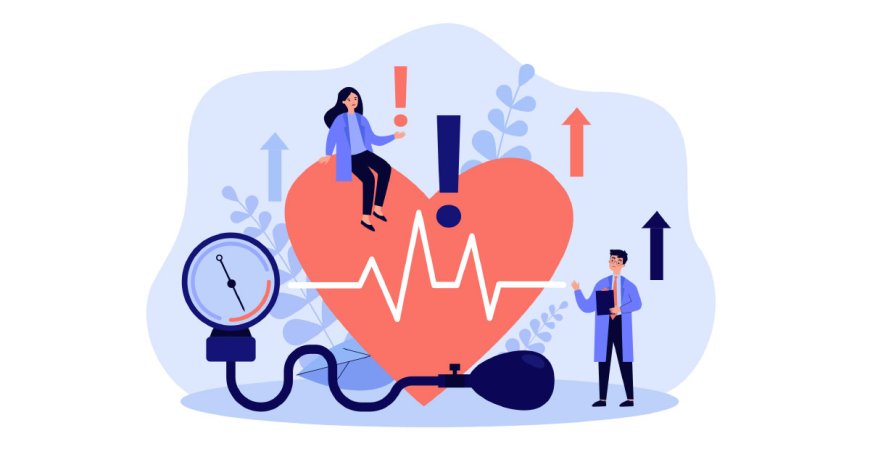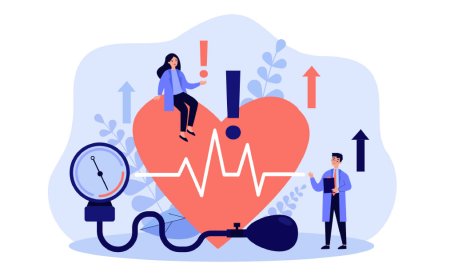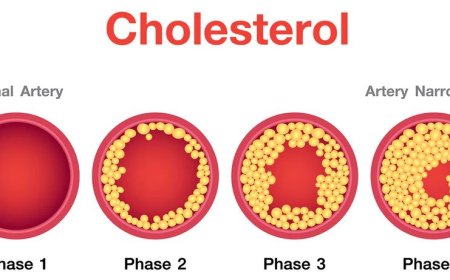Heart Diseases

The heart is like a very special pump inside our body. It is a muscle that works non-stop to keep us alive. Just like a pump sends water through pipes, the heart pumps blood through blood vessels all over our body.
The heart's job is to send this blood, which carries oxygen and nutrients, to every part of our body so that our muscles, organs, and brain can work properly. It also helps to carry away waste and carbon dioxide, which our body doesn't need.
The heart is an essential part of our body, and it works automatically without us even thinking about it. We can help our heart by eating healthy foods, exercising, not smoking, and taking good care of ourselves. Taking care of our heart is crucial because it keeps us alive and healthy.
Heart disease is a term used to describe problems with the heart. Our heart is like a pump that sends blood all around our body, giving it oxygen and nutrients. Heart disease happens when something goes wrong with the heart and it doesn't work as well as it should.
Sometimes, the blood vessels that carry the blood to and from the heart get narrow or blocked, like a clogged pipe. This can make it hard for the blood to flow, and the heart may not get enough oxygen and food to stay healthy.
Heart disease can cause different problems, like a heart attack, where the heart gets hurt because it doesn't get enough blood. It can also make the heart weaker and lead to problems with breathing or feeling tired all the time.
Types of Heart Disease:
- Coronary Artery Disease (CAD): This is the most common type of heart disease. It happens when the blood vessels that supply the heart with oxygen and nutrients get narrow or blocked due to a buildup of fatty deposits called plaque.
- Heart Failure: When the heart becomes weak and can't pump blood effectively, it is called heart failure. It can happen due to various reasons, including untreated high blood pressure or damage from a heart attack.
- Arrhythmias: The heart has an electrical system that controls its rhythm. Sometimes, the electrical signals can get messed up, causing the heart to beat too fast, too slow, or irregularly. These are called arrhythmias.
- Valvular Heart Disease: The heart has valves that ensure the blood flows in the right direction. Valvular heart disease occurs when these valves become damaged or don't work correctly.
Risk Factors for Heart Disease:
- Unhealthy Diet: Eating too much junk food, sugary drinks, and fatty foods can contribute to heart disease.
- Lack of Exercise: Not being physically active can put a strain on the heart.
- Smoking: Tobacco and smoking are harmful to the heart and blood vessels.
- High Blood Pressure: When the pressure of blood against the artery walls is too high, it can damage the heart.
- High Cholesterol: Having high levels of cholesterol in the blood can lead to plaque buildup in the arteries.
- Diabetes: Uncontrolled diabetes can increase the risk of heart disease.
- Family History: If close family members have had heart disease, it may increase the risk for others in the family.
Prevention:
- Eat Healthy: Include fruits, vegetables, whole grains, and lean proteins in your diet. Limit sugary and fatty foods.
- Stay Active: Regular exercise, like playing sports or dancing, keeps the heart strong.
- No Smoking: Avoid smoking and stay away from secondhand smoke.
- Check Blood Pressure: Regularly check blood pressure and manage it if it's high.
- Watch Cholesterol: Know your cholesterol levels and control them through a healthy lifestyle and, if necessary, with medications.
- Manage Stress: Find healthy ways to cope with stress and relax.
- Regular Check-ups: Visit the doctor for check-ups to catch any potential problems early.
What's Your Reaction?























































